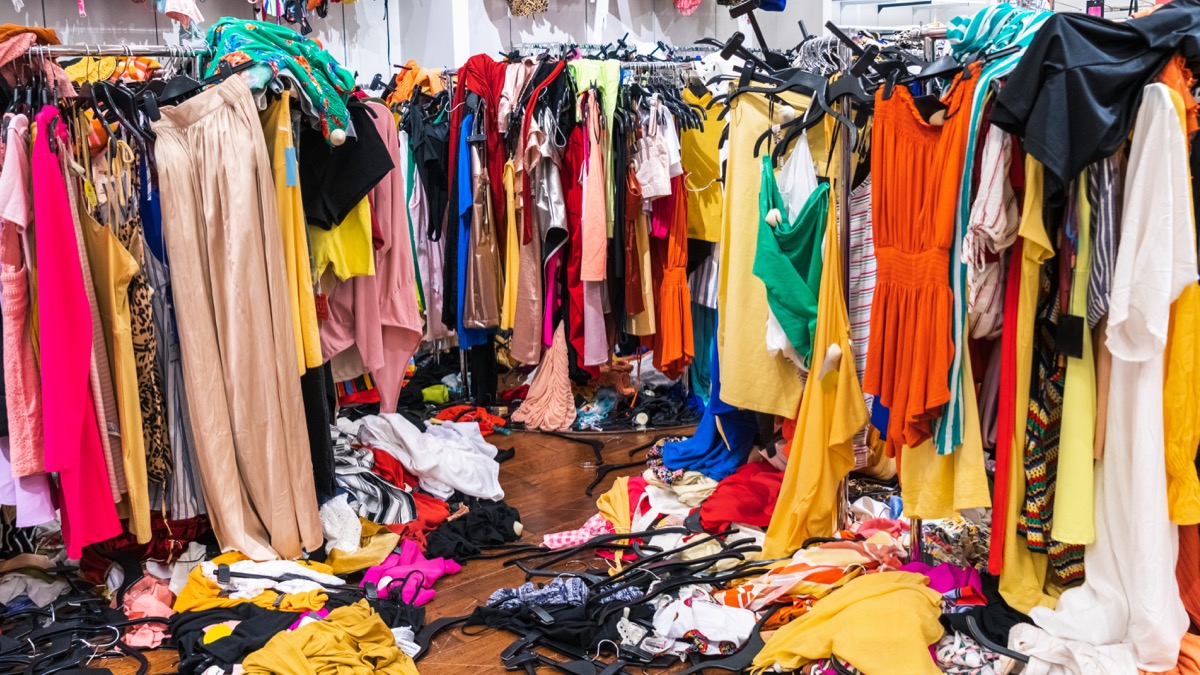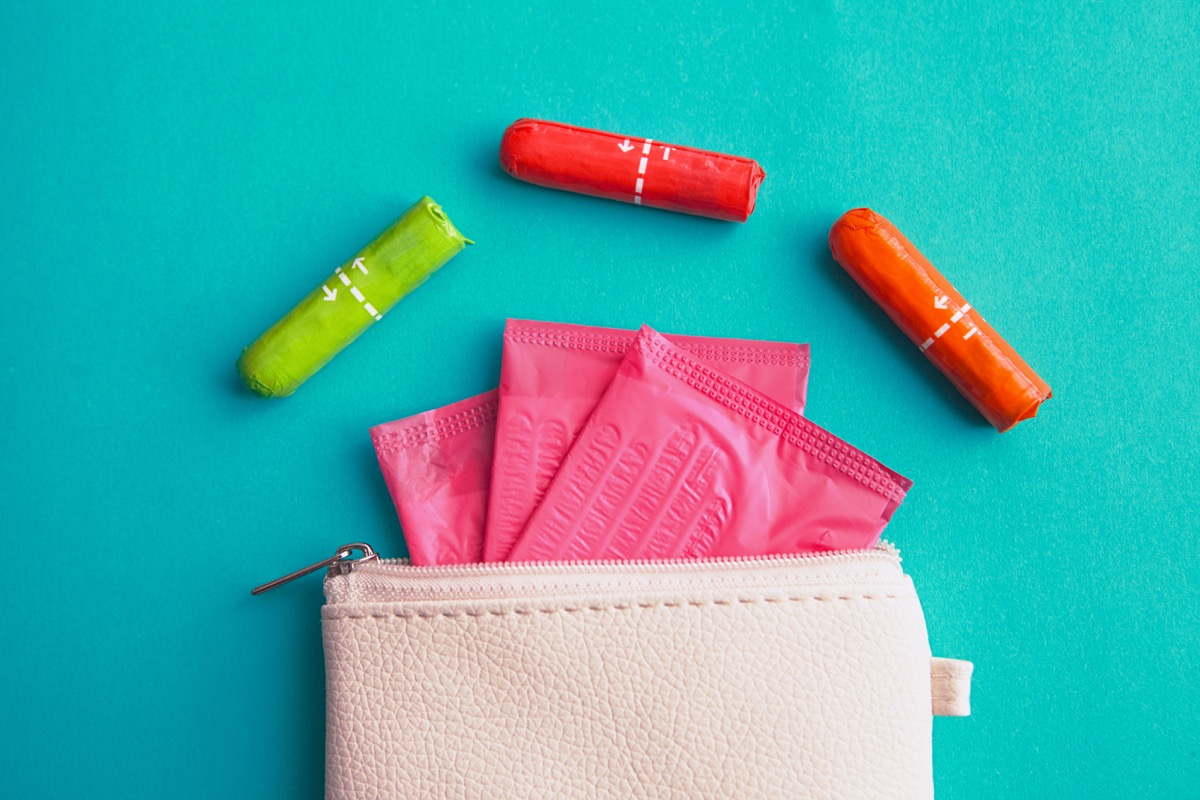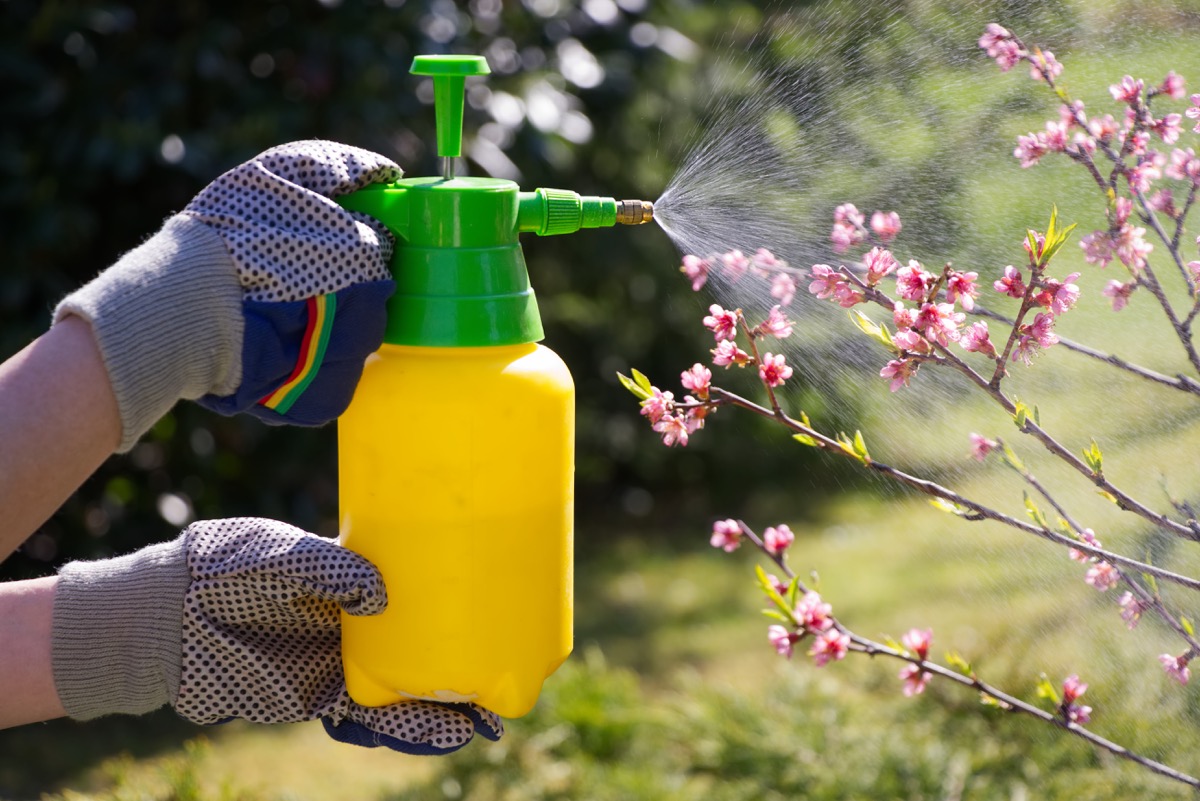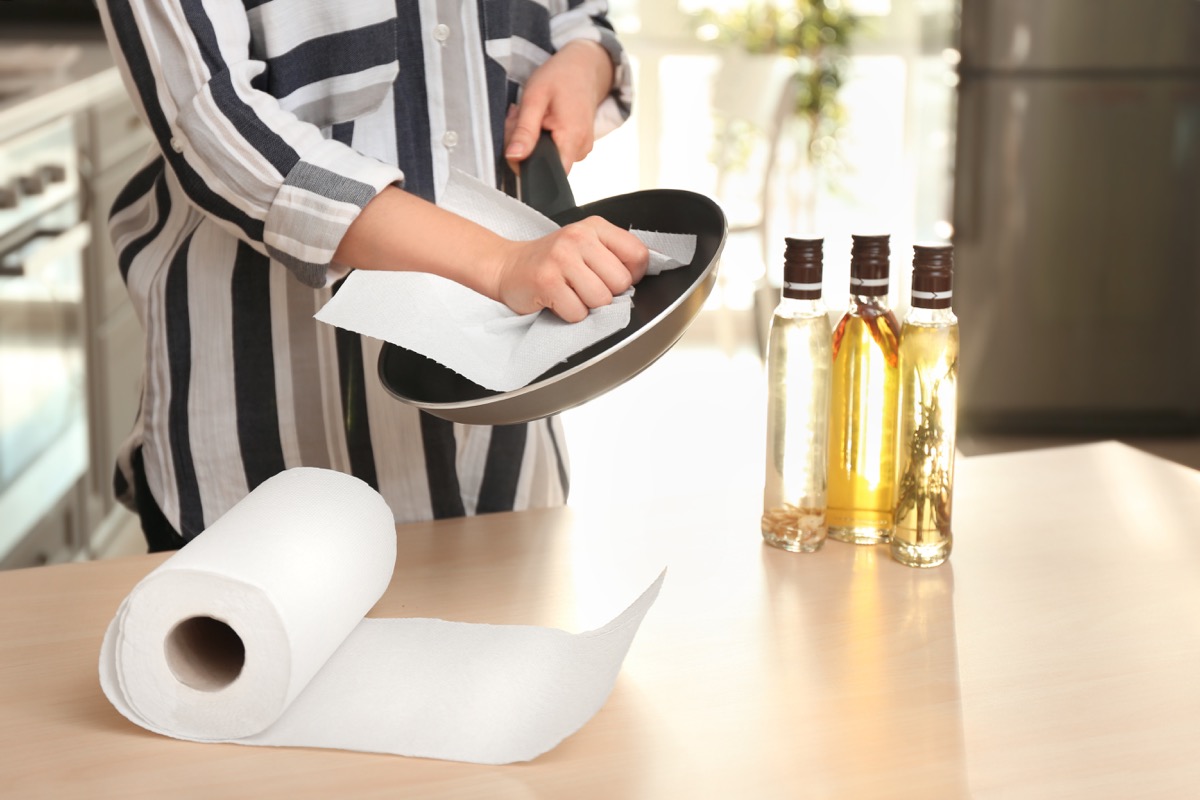21 Habits That Are Bad for the Environment
Ditch these habits if you want to help save the planet and reduce your carbon footprint.

The coronavirus pandemic has changed life as we know it. And while there are no benefits of this terrible contagion, now that so many of us are in quarantine, it's become apparent how much our day-to-day life wreaks havoc on the planet. In fact, air pollution decreased across Europe and China almost overnight since people started to stay in their homes. In London, for example, average air pollution levels have fallen to their lowest since 2000, according to the London Air Quality Network. But what exactly has caused this drop in pollution? Well, it's a direct result of people not partaking in certain habits. To help you learn what you've been doing that's bad for the environment, we talked to experts to gather a list of habits you should kick to help save the Earth this year.
1
Driving too much

One of the largest contributors to pollution is the gas emission that comes from cars. "Drop driving as much as possible. Switch to using a bicycle or public transportation. This reduces your carbon footprint, increases your activity level, and is usually more cost-effective," says sustainability expert Galina Witting, co-founder of Baabuk. If you can't bike to work, try to carpool with a colleague to reduce your carbon footprint.
2
Buying fast fashion

Fast fashion companies are another detriment to the environment. "The fashion industry is responsible for 10 percent of global emissions, and fast-fashion only exacerbates the problem," says Witting. "Rather than choosing the cheap synthetic-fiber shirt that you'll wear only once, pick the quality-made natural fiber option that has less harm on the planet."
3
Throwing out items in good condition

Ensuring items have a long life helps the Earth have a healthier life, too. But in the name of decluttering, people often end up tossing things that could either be repurposed or given to someone else, causing a perfectly good shirt or blanket to end up in a landfill. Witting urges people to "repurpose what they can and otherwise recycle items."
4
Buying single-use items

We all tend to rely on plastic wrap and single-use plastic bags when packing up our lunches or leftovers. But reducing, reusing, and recycling has never been easier with so many companies providing sustainable alternatives to those everyday products. Replace plastic wrap with beeswax reusable wrap and swap plastic sandwich bags with reusable silicone bags—these small changes can make a huge difference.
5
Drinking bottled water

We have been told to stop buying bottled water for years now, but many people are still doing it. If you need a reminder, know that plastic can take up to 450 years to biodegrade, inflicting years of damage on the Earth. Some people have converted to toting refillable water bottles that keep their water intake up and save the Earth—and it's something you should consider, too. Water is a natural resource that should not be placed in a harmful chemical casing when we can just as easily get it from the sink.
6
Using tampons and pads

Over half of the population is made up of women and most of those women will have their period almost every month for about 40 years—meaning we use a ton of feminine hygiene products that create non-recyclable byproducts. How much, you may be wondering? According to Julie Weigaard Kjaer, CEO and co-founder of Ruby Cup, "The average person who has periods will use up to 12,000 disposable period products over the course of a lifetime. … A menstrual pad contains the same amount of plastic as four carrier bags. A tampon takes 500 years to decompose." Swapping pads and tampons for reusable menstrual cups like Ruby Cup or period underwear from brands like Thinx and Knix can drastically minimize your negative impact on the environment.
7
Using utilities at 6:00 pm

This may seem like an oddly specific request. But, as energy expert and CEO of OhmConnect Cisco DeVries explains, "during peak energy times like 6 p.m., utilities respond to the surge in demand by firing up inefficient—read: CO2 intensive—auxiliary 'peaker' plants, passing this cost onto consumers." According to Devries, peaker plants produce two to three times the carbon emissions of a conventional plant. So this process harms both the environment and your energy bill. DeVries suggests people try turning appliances on earlier in the day (if possible) when energy is sourced from more eco-friendly sources.
8
Using pesticides and weed killers

A 2009 study from the National Center for Biotechnology Information shows overwhelming evidence that pesticides pose a potential risk to humans and have unwanted side effects on the environment, too. Kick these pesticides to the curb and use natural methods to maintain your garden instead.
9
Importing goods

Our society has become very reliant on express shipping and online shopping, but these practices come with negative side effects for the environment when you consider all the emissions that go into getting your goods from one side of the globe to another.
Instead, we should be shopping locally. "One of the most potent ways to transform our economic system while also lightening our footprint on the Earth is by sourcing our staples locally instead of importing them from afar, especially food, power, and money," says professional surfer and environmental activist Lauren Hill.
10
Eating a lot of meat

Meat consumption has to go down worldwide if we want to save our planet. A 2019 report in The Lancet urges people to adopt a largely plant-based diet with occasional allowances for meat, dairy, and sugar. This means being conscious of your meat intake and minimizing it where you can. We're not saying you have to go full vegetarian, but adding in Meatless Mondays could be hugely beneficial for the environment. According to The Guardian, beef consumption needs to drop 90 percent and should be replaced with five times more beans and legumes to avoid dangerous climate change effects.
11
Buying more food than you need

People often stock up in grocery stores, tossing anything they want at the moment into their cart without considering if they actually need that item. In the U.S. alone, 30 to 40 percent of food is wasted. Especially at a time like this, we should all only be buying what we need. Next time you're at the grocery store, try to only buy what you know you will use, especially when it comes to perishable goods.
12
Throwing out produce

If you tend to be an overzealous shopper, you likely end up throwing out a handful of produce each week, which is a waste of Earth's resources. Make it a point to use every piece of produce possible in your meal plans and snack on the rest. It's also helpful to learn how to use every part of a vegetable, even the scraps.
13
Using 60-watt lightbulbs

If you haven't made the switch to LED light bulbs, the time is now! Old-fashioned incandescent bulbs release 90 percent of their energy as heat, so only 10 percent of the energy is actually going towards creating light.
14
Leaving the water running

Leaving the water running during the few minutes you're brushing your teeth or shampooing your hair might not seem like a huge deal, but a lot of energy went into treating the water running through your faucet or shower head. Conserving water is essential to maintaining a healthy planet, especially in communities where there is a drought.
15
Running small loads in the dishwasher or washing machine

Having a washing machine and dishwasher in your home are modern luxuries that we have come to take advantage of. But be cognizant of how much you are putting in these machines. According to the University of Michigan's Planet Blue, "The average washing machine uses 13,500 gallons of water per year. That is as much water as you will drink in your lifetime." Make sure to run only full loads so you can to get the most out of each wash.
16
Throwing out recyclables

It's easy to toss something in the trash without realizing it's recyclable, but taking the time to recycle can help the planet for years to come. Study up on what items can be recycled and be sure to put them in the correct bin to avoid a wasted opportunity to recycle.
17
Putting non-recyclable items in the recycling bin

On that same note, you also don't want to recycle items that don't belong in recycling bins. Admittedly, recycling can be confusing. There are quite a few items—like styrofoam and plastic grocery bags—that seem like they should be recyclable, but in fact, are not. But it's worth it to get informed because chucking non-recyclables in recycling bins messes with the recycling process and could potentially negate an entire batch of recyclables.
18
Using paper towels

Understandably, it may be second nature to rip off a paper towel sheet from the roll to wipe up a mess or when drying a dish since that's likely what you have done your whole life. But consider that the U.S. alone produces 3,000 tons of paper towel waste a day. If you train yourself, reaching for a reusable towel option instead of a paper towel will begin to feel natural.
19
Throwing out electronics

We generate around 40 million tons of electronic waste every year, worldwide. According to the U.S. Environmental Protection Agency, "Recycling one million laptops saves the energy equivalent to the electricity used by more than 3,500 U.S. homes in a year. For every million cell phones we recycle, 35 thousand pounds of copper, 772 pounds of silver, 75 pounds of gold, and 33 pounds of palladium can be recovered." So next time you are getting rid of your electronics, be sure to do some quick research on where you can recycle them properly.
20
Getting bills in the mail

Everything can be electronic now, from ordering food to getting receipts, so there's no need to get so much paper in the mail. Switch over to online billing for your credit cards, rent, and utilities to save piles of paper each month. It's not only better for the Earth, but also more efficient for you.
21
Printing single-sided documents

Going completely paperless is preferable and definitely doable in our digital world. However, if you do need a physical copy of your documents, don't print them single-sided. Select the option to print your papers double-sided, which cuts your paper waste in half with the click of a button!





















